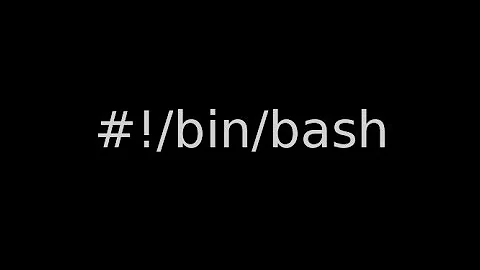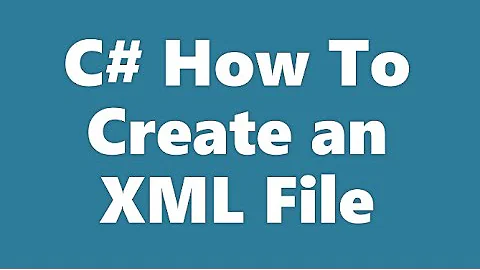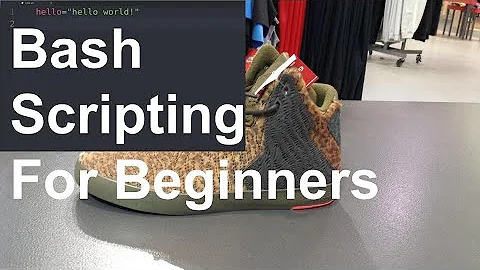create XML file using bash script
Solution 1
Print the line on this way:
echo '<root><foo a="b">'"$lorem"'</foo><bar value="ipsum" /></root>' >> "$MY_XML"
This is need because single quotes deny shell interpreter from replace environment variables inside
Solution 2
Use in-line document with cat
cat >destfile <<EOF
<your ZML here...where $vas expand happly>
but the rest remain as is
EOF
I used it in a lot of scripts. Consider also envsubst command to restrict variables you can use in the in-line document.
Solution 3
Frustratingly perhaps, one of the combinations you omitted would have worked:
echo "<root><foo a=\"b\">$lorem</foo><bar value=\"ipsum\" /></root>" >> $MY_XML
Single quotes leave everything exactly as you type it. Escaping with \ will not work. Double quotes will evaluate the string. Inside double quotes you can use \ to escape specific characters (including the double-quote character itself).
You could also combine parts of the string that are quoted in different ways. Here, $lorem remains double-quoted but the rest of the string is surrounded with single quotes:
echo '<root><foo a="b">'"$lorem"'</foo><bar value="ipsum" /></root>' >> $MY_XML
Solution 4
The issue is that you are using your variable in a single-quoted string. The shell will never expand variables in single quoted strings.
Another issue is that the value in $lorem would not be properly XML encoded, so that a value like <!-- would mess up the XML document and make it unparseable.
Instead, use the jo from https://jpmens.net/2016/03/05/a-shell-command-to-create-json-jo/ to create a JSON document and the yq tool from https://kislyuk.github.io/yq/ to convert this to XML:
% lorem=LOL
% jo -p root="$( jo 'foo[@a]'=b 'foo[#text]'="$lorem" 'bar[@value]'=ipsum )"
{
"root": {
"foo": {
"@a": "b",
"#text": "LOL"
},
"bar": {
"@value": "ipsum"
}
}
}
Then pass this through yq -x to convert to XML. Keys starting with @ will be turned into node attributes, and the value of the #text key will be turned into the node's value.
% jo -p root="$( jo 'foo[@a]'=b 'foo[#text]'="$lorem" 'bar[@value]'=ipsum )" | yq -x
<root>
<foo a="b">LOL</foo>
<bar value="ipsum"></bar>
</root>
With the value <!-- in $lorem:
% lorem='<!--'
% jo -p root="$( jo 'foo[@a]'=b 'foo[#text]'="$lorem" 'bar[@value]'=ipsum )" | yq -x
<root>
<foo a="b"><!--</foo>
<bar value="ipsum"></bar>
</root>
Related videos on Youtube
Comments
-
maihabunash over 1 year
I want create simple xml file using bash script ( not with dom )
but when I set value in the line then echo print the $lorem word and not the val
lorem=LOL
echo '<root><foo a="b">$lorem</foo><bar value="ipsum" /></root>' >> $MY_XMLI also try this
echo '<root><foo a="b">\$lorem</foo><bar value="ipsum" /></root>' >> $MY_XML echo '<root><foo a="b">"$lorem"</foo><bar value="ipsum" /></root>' >> $MY_XML echo '<root><foo a="b">\"$lorem\"</foo><bar value="ipsum" /></root>' >> $MY_XMLbut all these print the exactly the line and not the val
please advice how to print the val $lorem ? as the following example
<root><foo a="b">LOL</foo><bar value="ipsum" /></root>
![Write Your Own Bash Scripts for Automation [Tutorial]](https://i.ytimg.com/vi/PPQ8m8xQAs8/hq720.jpg?sqp=-oaymwEcCNAFEJQDSFXyq4qpAw4IARUAAIhCGAFwAcABBg==&rs=AOn4CLCwQaGsEd2aIIwg4kHP-QI1pGNjCg)





